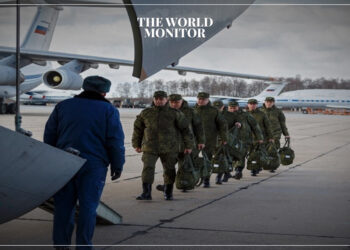Israel has halted the renewal of visas and work permits for dozens of relief workers providing essential support to Palestinians in the West Bank and Gaza Strip following the attacks on October 7th. According to Bloomberg, Fares Al-Arouri, director of the Association of International Development Agencies—an umbrella group—mentioned that the renewal ban includes area managers, emergency response teams, senior management, and other expatriates working in the West Bank or coordinating affairs inside the Gaza Strip.
The Association includes organizations like Oxfam, Action Against Hunger, Amnesty International, CARE International, and Catholic Relief Services. The Israeli Ministry of Social Welfare, which has been the main body recommending such visas until now, reportedly does not feel equipped to conduct the required background checks and has asked the Prime Minister’s office to assign a different agency for this task. The Prime Minister’s office has asked the National Security Council to find the best way forward, which may take some time.
The humanitarian situation in Gaza has reached critical levels following recent conflicts, with significant impacts on healthcare, food security, and living conditions. Hospitals in Gaza are experiencing dire shortages of medical supplies, facing catastrophic conditions due to Israel’s total blockade. Essential items like emergency, trauma, and surgical supplies are rapidly depleting, with the entry of humanitarian supplies being severely restricted. The healthcare infrastructure is on the brink of collapse, with hospitals running on backup generators that are close to running out, endangering thousands of patients, including those with critical conditions like kidney and cancer patients. The bombardment has directly damaged numerous health facilities, exacerbating the already fragile health sector in Gaza.
The food situation is equally grim, with nearly half a million people unable to access food rations due to the closure of food distribution centers since the onset of the attacks on October 7. The disruption in food supply chains and the destruction of agricultural land and livestock have further worsened food insecurity. Only a small fraction of planned deliveries of aid containing food and other life-saving supplies have reached their destinations, particularly in the northern regions of Gaza, where prolonged food shortages and extremely restricted access to essential resources are reported. The entire civilian population is facing unprecedented levels of hunger, with a significant portion of the population starving and struggling to find food and drinkable water.
Drinking water has become more scarce, with families searching for hours to find water, often resorting to brackish water from agricultural wells, raising concerns about waterborne diseases. The last functioning seawater desalination plant in Gaza has shut down due to fuel shortages, and water and sanitation facilities have suffered damage due to the incessant airstrikes, further exacerbating the risk of disease spread.






